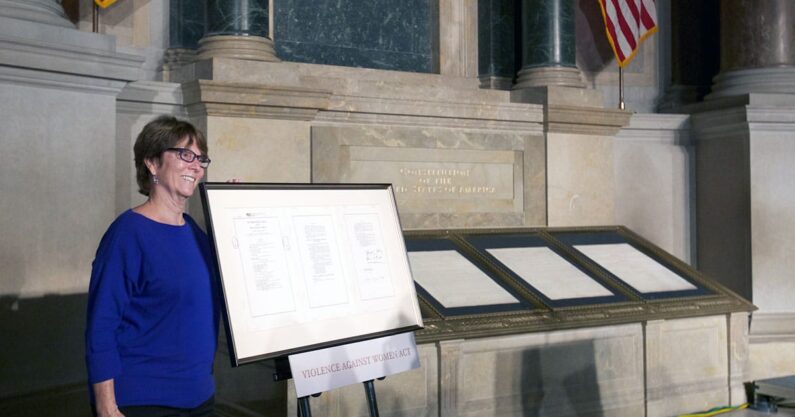VAWA funds are not intended for lobbying. Yet, everywhere you look, State domestic violence coalitions are bending this rule. They’re spending taxpayer money on family law debates. They’re not supposed to. But they do.
Congress seems blind or maybe just doesn’t care. The misuse of Violence Against Women Act (VAWA) funds is glaring. It’s undermining fatherhood, sidelining the goal of shared parenting, and hurting kids of divorce. The question is loud and clear: Does Congress see this? Do they even want to?
We need a fix. A real one. VAWA’s intended use of funds should mean something.
The 2022 reauthorization of the Violence Against Women Act focused on expanding support and protections rather than addressing waste management issues. It does not explicitly mention measures to prevent or address financial misuse or waste of VAWA funds.
Maybe, just maybe, VAWA should expire next time. Let it go. Its renewal only harms the American family more with each passing year. It’s a tool that’s become too political and wasteful, too far from its original noble goal.
Intended Use of VAWA Funds
VAWA grants are explicitly designed to provide resources, information, and technical assistance. The goal is to prevent domestic violence and support victims. They are not designated for lobbying purposes and other sloppy spending destinations.
The focus is meant to be on resource centers, specialized and culturally sensitive interventions, and the capacity of organizations to respond to domestic violence issues.
Excessive Compensation at Florida Coalition
In a glaring example of financial misuse within organizations receiving VAWA funds, Tiffany Carr, the former CEO of the Florida Coalition Against Domestic Violence, was reported to have received over $3.7 million in paid time off.
This case has not only drawn widespread criticism but also led to multiple lawsuits aimed at recouping the misallocated funds. Carr’s excessive compensation highlights the critical need for rigorous oversight and accountability in the administration of federal funds.
Widespread Non-Compliance Among Grantees
Senator Chuck Grassley’s review of VAWA grantees revealed a disturbing pattern of non-compliance. Examining 22 VAWA grantees from 1998 to 2010, the review found that 21 of them had violated various grant requirements.
The range of violations included unauthorized and unallowable expenditures, sloppy recordkeeping, and failure to report in a timely manner. This widespread non-compliance not only undermines the effectiveness of the VAWA but also highlights the necessity for improved monitoring and enforcement mechanisms.
Lobbying in New Hampshire
Take New Hampshire’s Coalition against Domestic and Sexual Violence. They lobby. A lot. They shouldn’t. But no one’s stopping them. They push their agenda under the guise of helping, but really, they’re shaping policy to fit their view.
Karen McCall once said, “80% of fathers who want custody are batterers.” Really? That’s not help. That’s scare tactics. It’s making the fatherhood crisis worse.
Conclusion
The misuse of Violence Against Women Act (VAWA) funds is widespread. Audits reveal serious issues. Many recipients fail compliance checks. The problem is big. Over $14.7 million was misused.
- Tiffany Carr’s case stands out. She got $3.7 million in excessive pay. Lawsuits followed.
- There’s more. Some used VAWA funds to pay high consultant fees. Others mismanaged funds, like the Family Crisis Center in Maryland. It had to shut down.
- Laura Ewing embezzled from a Wisconsin coalition. Senator Grassley found many grantees violating rules.
- Funds meant to help victims are often spent elsewhere. This includes lobbying efforts. Such misuse diverts vital resources.
Congress must act. Oversight needs tightening. VAWA’s focus must return to supporting victims.

